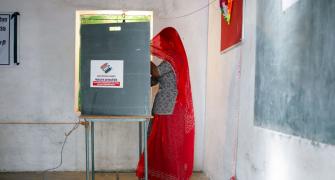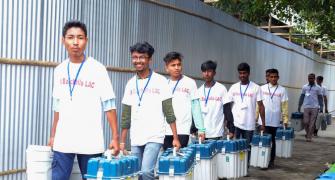A United Nations' body has called for greater public and private spending for upgrading critical areas of India's infrastructure, a key driver of the economy, and said a bulk of these investment need to be generated internally.
Increased public investment in infrastructure coupled with rise in rural income would help sustain the growth of industrial and services sector, the Economic and Social Commission for Asia and the Pacific (ESCAP) survey said on Thrusday.
"Higher growth over the medium term would be feasible with sustained fiscal reforms by both central and state Governments," it said, adding that enhancing public and private spendings would boost the investment rate and provide the resources for upgrading critical areas of infrastructure.
The survey, however, said that bulk of the savings would have to be generated domestically though there has been some increase in the use of FDI.
ESCAP, the regional arm of the UN Secretariat for the Asia-Pacific region, also said that India would sustain a GDP growth rate of 8 per cent during 2006-08 if no major external or internal events happen to destabilise the economy.
The growth would be supported by a 2.5-3 per cent growth in agriculture, 8.5 per cent in industry and 9 per cent in services, the survey released on Thursday said.
The survey is the final report card of the Asia and Pacific region which would be discussed at the ESCAP meeting to be held in Jakarta next month.
Pointing at emerging inflationary pressure in the South Asian countries including India, Pakistan and Sri Lanka, the survey said there was 0.7 percentage point increase in inflation in India in 2005 while the impact was much sharper in Pakistan and Sri Lanka at more than 4 percentage points.
The survey was released by Nagesh Kumar, director, research and information system.
Pointing at India's high public debt, the survey said, "India's public debt remains high and is a major policy issue. A high overhand of domestic debt poses significant challenges, putting pressure on interest rates, crowding out private investment and creating problems for future debt servicing."
The Centre's debt as a ratio to GDP has decreased slightly from 69.4 per cent in March 2003 to 68.4 per cent in March 2005 and was estimated to be 67.2 in March 2006.
Further, India's current account turned to a deficit of $6.4 billion (0.9 per cent of GDP) in 2004 after remaining in surplus during 2001-03 due to a rise in economic activity.
This was because though exports rose 24.9 per cent in 2004, imports rose even faster at 48.4 per cent, resulting in a widening trade deficit. The current account deficit in 2005 is expected to be higher at 1.3 per cent.
Sound macro-economic environment, stable exchange rate, liberalisation of foreign investment policies and relatively high returns on investments compared to some other countries have seen major FDI inflows into the country.
To maintain high growth, it said both the wholesale and consumer price indices would remain at about 4 per cent during 2006-08, given the government's commitment for reforms including strict fiscal prudence, monetary discipline, orderly movement of the rupee exchange rate, continued reduction of import duties and other indirect taxes and removal of all quantitative restrictions on imports of consumer goods.
Do you want to discuss stock tips? Do you know a hot one? Join the Stock Market Discussion Group.







